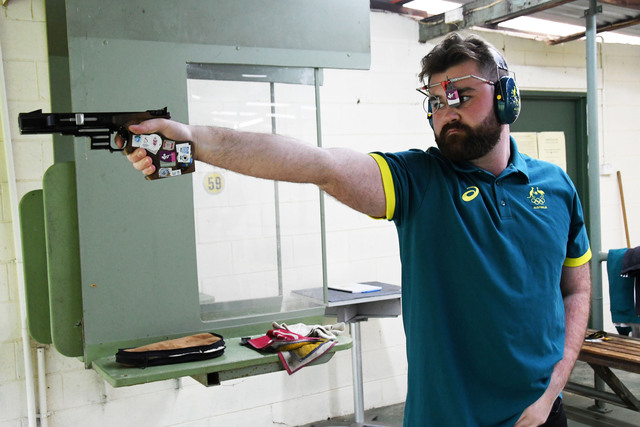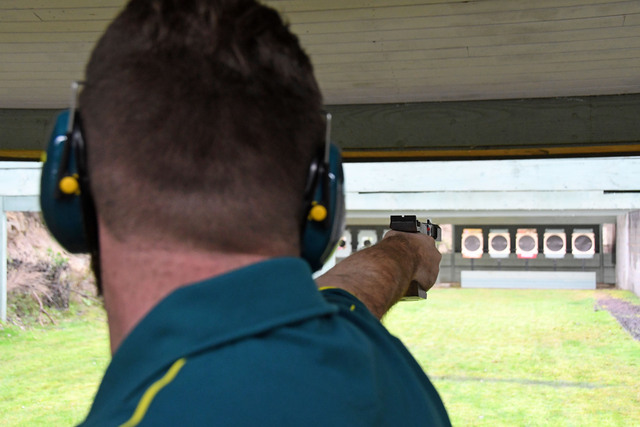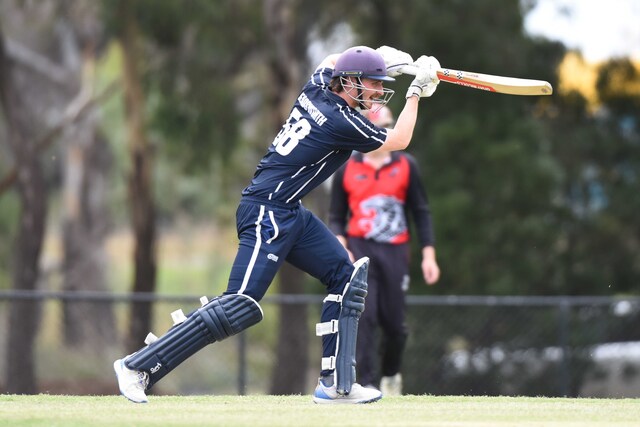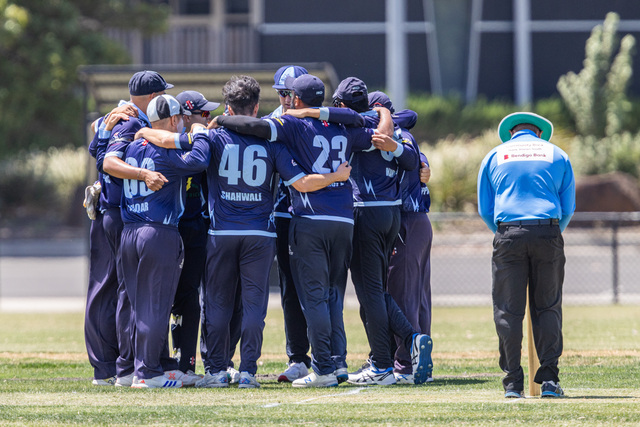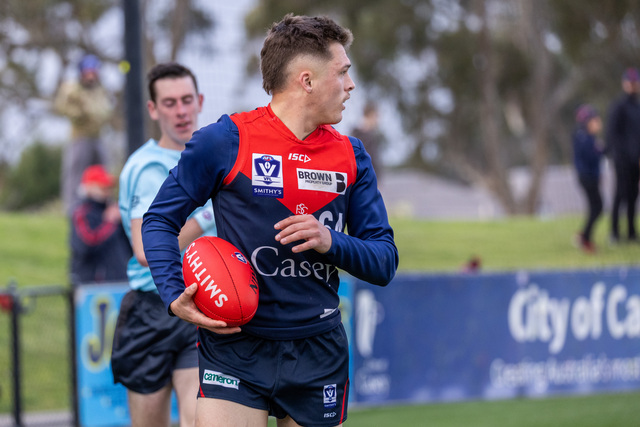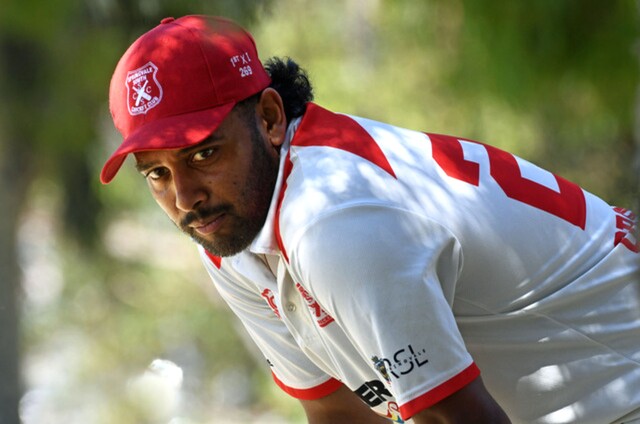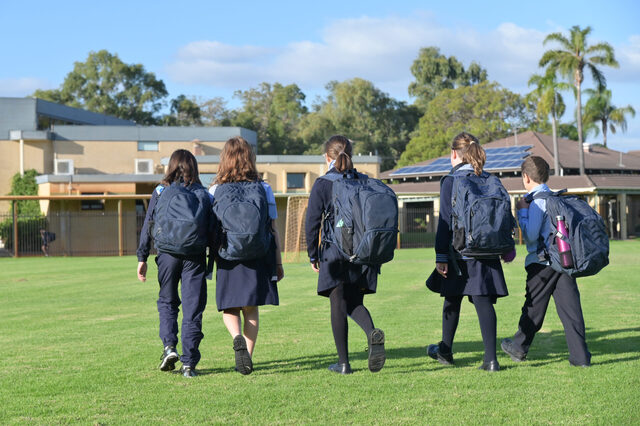Over the Christmas period, the News’ sports team will be re-sharing some of the most popular stories from over the course of 2024.
Thank you for supporting our newspapers over the course of the year. We hope you enjoy the selection and have a wonderful holiday period, however you choose to celebrate.
A mentality shift and strong preparation has Berwick 25-metre rapid fire pistol shooter Sergei Evglevsky confident ahead of Paris.
The 26-year-old made his Olympic debut at Tokyo in 2021 but did not make it past qualification, with his lead in to the event stymied by Covid-19.
Prior to Tokyo, Evglevski had not shot internationally since 2019 as a result of the pandemic, leaving him short on competition against the world’s best.
Despite his intense training campaign and having previously matched it with the world’s best, as evidenced by a silver medal at the 2018 Commonwealth Games, Evglevski was left disappointed with his result.
This time, he enters with great confidence, having shot in Azerbaijan, Germany and Brazil in a year he has set up to optimise his Olympic preparation.
“Going into an Olympics with four international comps, training camps internationally and in Australia has made me realise I am competing against the world’s best and helped me understand what I need to do to be there,” Evglevski explained.
My confidence is much higher compared to Tokyo.
“I went into Tokyo feeling confident but I was probably standing on a very thin block of ice and it could stay put or crumble and unfortunately for me, it crumbled and as soon as I started competing, I let my nerves and emotions get the better of me.
“Whereas now having international exposure under my belt going into the Olympics has been a massive confidence booster.
“Going into Paris, I know I have ticked off the Olympics which makes it easier to manage my expectations, manage my emotions and manage and control my mental state.”
The event in Rio De Janeiro in April was an important education piece for Evglevski, who trains at Yarra Pistol Club in Lysterfield.
Shooting with the knowledge that a first-placed finish would give Australia a second quota position in Paris, Evglevski shot well below his best, finishing with a score of 574.
“I think that pressure got to me,”Evglevski conceded.
“I was sitting comfortably after my first half and I was thinking about what it would mean if someone else from Australia qualified.
“Shooting being such a mental sport, it got to me a little bit so I was a little bit rattled going into the second half of the match but still placed 12th.”
He bounced back in Baku, shooting 584, a score which regularly makes world championships and Olympics finals, but was just short of the 586 qualification cutoff on the day.
That score was more symbolic of his confidence against the world’s best, averaging higher scores in 2023 internationally than domestically, highlighting his maturation as a shooter.
Evglevski is of Belarusian heritage, with his Mother, Lalita Yauhleuskaya, a six time Olympian for Belarus.
Shooting is a significant reason why Sergei has grown up in Australia, putting an extra motif on the sport.
Evglevski has spoken regularly to his Mum, and Dad who is a well-regarded shooting coach, about preparing for the event.
“Shooting means family culture, it’s something I’ve been brought up with and it’s the reason I’ve been able to have a good life in Australia. It means I can travel the world through a sport I love and make friends overseas and experience things not a lot of people get to. And the shooting community in Australia is wonderful and supportive so I want to give back to them as well.
We have regular chats about it but what my parents do well is keep the sport simple. It’s never about having to chase this or look deep into this. They’re all about aiming the gun, pulling the trigger and moving onto the next shot. Just because you do it in Australia, doesn’t mean you can’t do it internationally and they’ve told me I now have a wealth of experience where nothing should hold me back. Before Paris, I took so much time off work, I was in training camps internationally, going into international competitions because I don’t want to have regrets going in and I genuinely don’t so I feel like I’m in a good position
As for the goal in Paris?
“To do the best I can,” he said simply.
“If I do the best I can, I know I can perform well.
“I’m not going in there relieved or thinking I’ve already done it because I’ve made the Olympic team.
“I’m going in there thinking this is the final step I still have to achieve.
“It’s part of the journey and I feel prepared, ready and confident, and confident that I am still doing the training and if I do what I can on the day, I’ll be well placed.”
Rapid fire is the only shooting discipline held continually at every Olympics since 1896.
The shooting events are held at a remote village 300 kilometres outside of Paris, so Evglevski’s experience will look different to typical athletes.
The shooter left for Paris on 23 July ahead of his event held across 4-5 August, before he heads to the main Olympic Village to take part in the closing ceremony.
Evglevski’s personal best in overseas competitions is 584, which he’ll likely to need to break to shoot his way onto the podium, but he has shot scores of up to 590 domestically.
The Olympic record is 592, while the world record is 593.
Evglevski’s preparation has carried significant financial burden, with the shooter taking several months off work in 2024 to best prepare him for the games.
To donate to his campaign, visit the link: https://asf.org.au/projects/sergei-evglevski/sergei-2024-paris-olympic-campaign
How rapid fire works
– Two halves
– Each half involves three time series
– Shooters first fire five shots at a target across eight seconds, twice, before doing the same across six and four seconds, which makes up a half.
– Maximum of 10 points per shot if the bullseye is struck
– Therefore, the most possible points is 600

